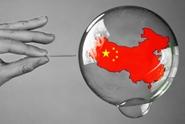Government/Policy

July 21, 2016
DOC Affirms Dumping of Washing Machines from China
Written by Sandy Williams
The steel intensive washing machine is the subject of an antidumping investigation brought against China by Whirlpool Corporation.
The Department of Commerce issued an affirmative preliminary determination on Wednesday, July 20, 2016, in the AD investigation into imports of large residential washers manufactured by LG and Samsung in China. The DOC also found that critical circumstances exist with respect to Samsung.
In December 2015, Whirlpool petitioned the DOC to stop the dumping of residential washing machines manufactured in China by Samsung and LG. Whirlpool charged that the two competitors were selling washers at less than fair market value and cited a long-term pattern of pricing below cost, causing injury to American manufacturers. The 2015 petition followed a ruling by the DOC in 2013 (also brought by Whirlpool) that Samsung and LG were dumping washers exported to the U.S. from South Korea and Mexico.
In the press release from Whirlpool in December, Marc Bitzer, president and chief operating officer for Whirlpool Corporation said:
“Simply put, beginning in 2013, Samsung and LG replaced their dumped washers from Korea and Mexico with dumped washers from China. Since then, Samsung and LG have blatantly ignored a previous U.S. government order by continuing to dump washers into the United States. At Whirlpool, we know that open, rules-based trade ensures the highest level of innovation and choice for consumers. Our ability to innovate, invest and continue to manufacture here in the U.S. is undermined when foreign competitors willfully defy U.S. government rulings. We have continuously monitored this situation during the past several years and have spent the past several months preparing this petition as the next step in an ongoing effort to prevent this serial dumping.”
Wednesday’s preliminary ruling by the DOC found dumping has occurred by mandatory respondents Nanjing LG-Panda Appliances Co., Ltd. (LG), and Suzhou Samsung Electronics Co. Ltd. and Suzhou Samsung Electronics Co. Ltd – Export (collectively, Samsung) at preliminary dumping margins of 49.88 percent and 111.09 percent, respectively. Commerce calculated a preliminary dumping margin of 80.49 percent for all other producers/exporters in China.
Critical circumstances were found to exist in regards to Samsung. Critical circumstances are found when a surge of imports occurs over a relatively short period of time in anticipation of possible AD duties.
“Today’s ruling is an important step forward in an effort to stop serial dumping practices by Samsung and LG and uphold free and fair trade practices,” said Bitzer following the DOC announcement. “At Whirlpool, we know that open, rules-based trade ensures the highest level of innovation and choice for consumers.”
Cash deposits will be collected on the preliminary AD rates by the U.S. Customs and Border Protection. In the case of the critical circumstances, CBP will impose provisional measures retroactively on entries of certain washing machines up to 90 days prior to publication of the preliminary determination in the Federal Register notice.
Case Timeline:
December 2015 – Whirlpool Corporation files antidumping petition
January 2016 – USITC issues unanimous preliminary affirmative vote to continue the antidumping investigation
July, 20, 2016 – DOC issues affirmative preliminary antidumping determination
December 9, 2016 – DOC expected to release its final antidumping determination
January 2017 – USITC expected to release its final determination regarding injury
January 2017 – DOC expected to issue a final order based on Commerce Department’s and U.S. International Trade Commission’s final affirmative determinations
If either Commerce’s or the ITC’s final determination is negative, no AD orders will be issued.







